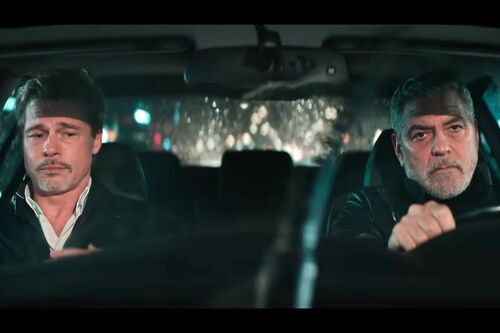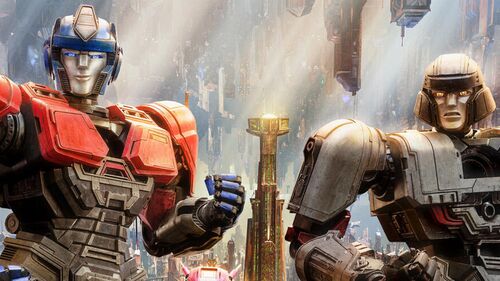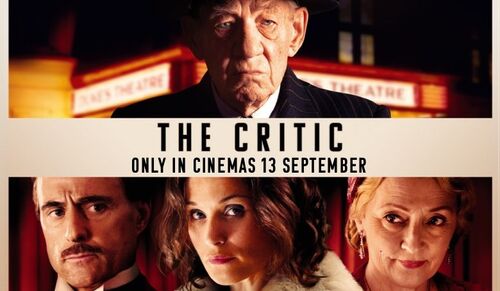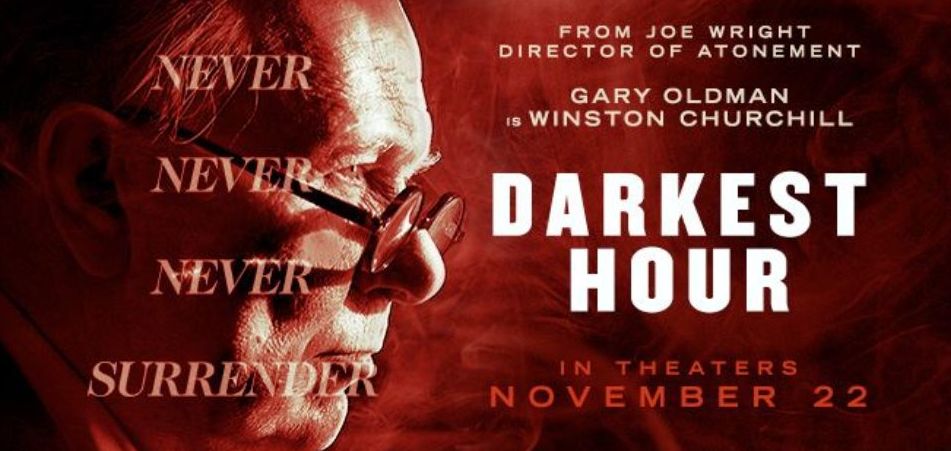
'Darkest Hour' Review
 When the first image of Gary Oldman as Winston Churchill was released, many people had the same reactions as when the first image of Daniel Day-Lewis as Abraham Lincoln was unveiled: “Wow! He looks incredible. He’s a lock to win Best Actor.”
When the first image of Gary Oldman as Winston Churchill was released, many people had the same reactions as when the first image of Daniel Day-Lewis as Abraham Lincoln was unveiled: “Wow! He looks incredible. He’s a lock to win Best Actor.”
Oldman’s face is engulfed in a heap of makeup and prosthetics (that team will be singled-out for awards consideration). The veteran actor’s only previous Oscar nomination was for 2011’s “Tinker Tailor Soldier Spy” – and some called his selection a surprise considering the competition. This time there’s no debate. Without question, Oldman is deserving of Best Actor praise from every association for his commanding portrayal as one of the pivotal figures of WWII.
“Darkest Hour” is directed by Joe Wright, who helmed a visionary adaptation of “Anna Karenina” in 2012. Wright’s distinctive and effective style is once again on full display. He spices-up what, by nature, is a very talky film with a wide array of visual devices.
The color red is predominant – used to illustrate the dire threat Europe was facing from the advancing German army in the Spring of 1940. Churchill is asked to step-in for Neville Chamberlain as Britain’s Prime Minister. His first/only duty as the country’s new military leader? To decide what Britain’s strategy should be for dealing with Hitler’s eminent invasion of England. Churchill is largely disliked by the majority of Parliament, including those in his own party, but he’s believed to be the only one who can come-up with a way to rally both the political leaders and the citizens, in England’s fight against the Nazi aggression.
For Churchill, this means not going with Chamberlain’s policy of appeasement, or compromising in any way. Instead, he adopts the stance to fight to the end. (“We shall never surrender!”) Early scenes of debate and disagreement have a similar flavor to those in “Victoria & Abdul”, a film out earlier this year about a powerful British leader (Queen Victoria) who wants to rule her way, while everyone else is strongly against her methods.
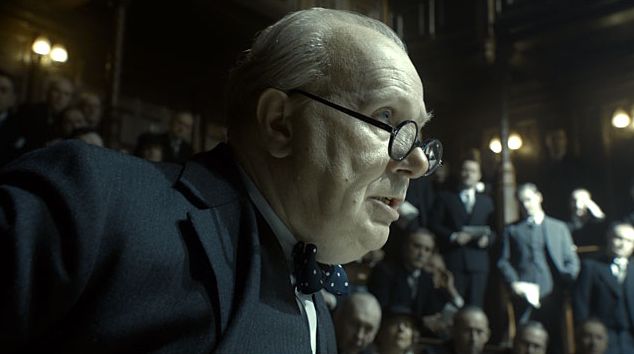
“Darkest Hour” starts-off a little…quirky, with the tone, music and overall staging not appropriate of a historical figure biopic. Once we get some additional character introductions, the film settles into the right level of gravity. But there is a lot of chatter and a number of loud, showy arguments.
The true 2017 companion film to “Darkest Hour” is Christopher Nolan’s “Dunkirk”. The Battle of Dunkirk, the turning point of the Allies victory over Germany, is the centerpiece of both movies. You could almost combine “Dunkirk” and sections of “Darkest Hour” into one film, though, because of the scattered timeline Nolan presented, it’d probably be a really confusing final product. If you haven’t seen “Dunkirk” yet, you should do so first before watching “Darkest Hour”.
It’s in the second half of the screenplay by Anthony McCarten (“The Theory of Everything”) when “Darkest Hour” is able to take a breath and get down to the nitty gritty. It’s in the quieter, one-on-one scenes are where “Darkest Hour” really shines, particularly in moments between Churchill and his secretary (played by Lily James of “Cinderella” and “Baby Driver”). A late scene, with Churchill in an Underground car, learning what Londoners feel about him, the war, and their country, is as stunningly refreshing and gentle as any on screen this year.
Kristin Scott Thomas plays Churchill’s wife, though she doesn’t have nearly the kind of presence that or showcase time that Sally Field had as Mary Todd Lincoln. The rest of the supporting cast is solid. But through and through, “Darkest Hour” is Oldman’s movie. He is transformative and impossible to look away from. This is the brightest hour of his outstanding career.
